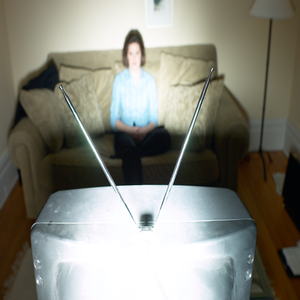Television and Behavior Problems in Children

The debate about the possible association between watching television and children’s behavior has been going on ever since this window on the world entered our lives fifty years ago.
A new study, indicates that consistent, heavy television viewing (more than two hours a day) throughout early childhood can cause behavior, sleep and attention problems.
Yes, you did read that correctly: heavy viewing is just two hours a day!
Researchers from the Department of Population, Family, and Reproductive Health at Johns Hopkins assessed data from the Healthy Steps for Young Children national evaluation effort that looked at the effects of early, concurrent and sustained television exposure at age two and a half and again at five and a half. They also measured the effects of having a television in the child’s bedroom at age five and a half.
Sixteen percent of parents said that their child watched television for more than two hours a day at age two and a half years only, which they called “early exposure;” 15 percent reported that their children watched more than two hours of television daily at five and a half years only, which they called “concurrent exposure;” and 20 percent reported more than two hours of television viewing daily at both times (sustained exposure).
Forty-one percent of children had a television in their bedroom by the age of five and a half. Sustained television viewing was associated with sleep, attention and aggressive behavior problems, and what is known as “externalizing” of problem behaviors: throwing or breaking things.
Excessive television exposure was associated with fewer social skills. Having a television in the bedroom was associated with sleep problems and less emotional reactivity in the five year olds. Early exposure to television for more than two hours a day, which decreased over time, did not cause behavior or social problems.
The American Academy of Pediatrics recommends no television viewing for children under age 2, and no more than two hours of daily media exposure for ages 2 and older.
This is scary research. How many children are parked in front of a television for hours at a time, just to get them out of the way. And what kinds of problems are we creating for our future?
One of the smartest people I know has several children who have never watched television. They are instead all multilingual and each is an expert in at least one musical instrument.
Makes you think, doesn’t it?






